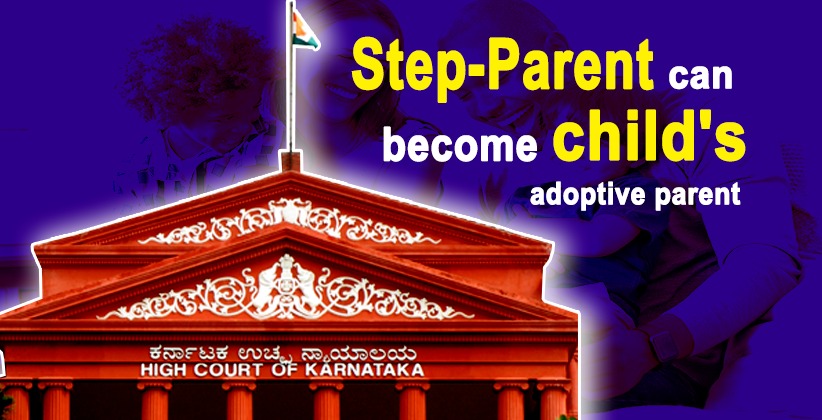The Karnataka High Court recently declared a stepmother as the legally adoptive mother of the minor child and the couple as parents of a minor child for all legal purposes, noting that "through the adoption process, the child is transplanted into the family of its natural father and step-mother thereby establishing a permanent parent-child relationship.
When the minor was barely a year old, his mother, wife of petitioner No.1 (biological father) passed away on 7.02.2010 in a road accident. Petitioner No.1 subsequently married petitioner No.2 on 23.11.2012. Since then, as her own child, she has looked after the minor and wanted to recognize her as the legal mother through the minor child's adoption.
The couple thus approached the trial under sections 56 and 61 of The Juvenile Justice (Care and Protection of Child) Act, seeking a declaration that the petitioner no 2 is the adoptive parents of the minor child. However, the court by its order dated October 14, 2019, rejected their petition.
The key reason for the rejection cited by the court was that it is not appropriate to nominate petitioner No.2 as an adoptive parent if the biological father who is petitioner No.1 is willing to take care of his son.
A bench of Justice John Michael Cunha said,
"These provisions do not prescribe any bar on the step-parent to adopt the child or children of one of the biological parents. It only requires scrupulous compliance of the procedure contemplated under the Juvenile Justice (Care and Protection of Children) Act, 2015 and Adoption Regulations, 2017 and requires the Court to satisfy itself that the various conditions stipulated under section 61 of the Juvenile Justice (Care and Protection of Children) Act, 2015 and Regulation 52 and 56 of Adoption Regulations, 2017, as the case may be, are followed before issuing an adoption order."
It further said, "The jurisdiction of the court and the safeguards that are required to be followed by the persons intending to adopt the child are clear and well-defined and there is no scope for the court to interpret any of these legal provisions."
It also added "This adoption is in the best interest and welfare of the child for the reason that in case petitioner No.1 becomes indisposed of or otherwise unable to look after the minor child, the child would have a legal parent or guardian and would not be rendered 'orphan'. This is precisely the object of the Juvenile Justice (Care and Protection of Children) Act, 2015."
The bench concluded by saying In the case on hand, the child himself has expressed his desire to live with his step-mother and the Karnataka State Council for Child Welfare scrutiny report, there was absolutely no justification for the learned trial judge to reject the petition on the ground that when the biological father is able to look after the minor and petitioner No.2 as a step-mother.










